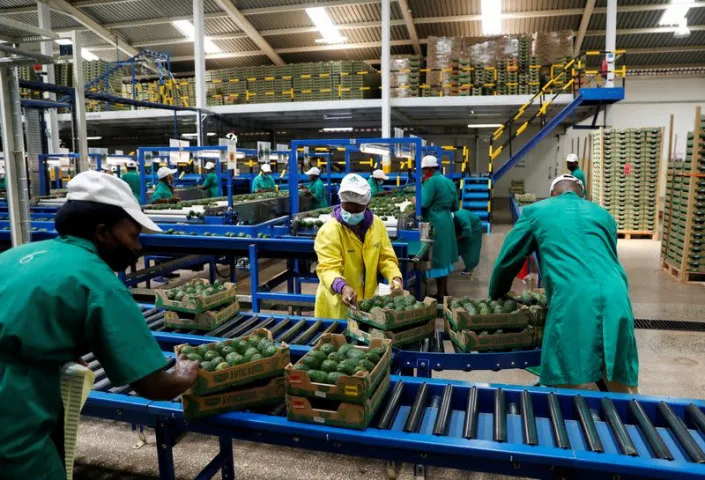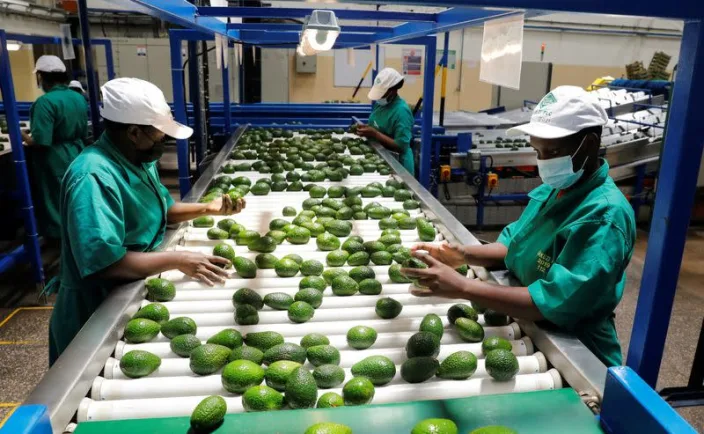

Nairobi — Kenya has overtaken South Africa to become Africa’s top exporter of avocados. In Central Kenya, where the majority of the country’s small-scale avocado farmers are found, coffee bushes are fast being replaced by avocado trees amid global demand and higher earnings.
There is a problem, however, theft. Avocado thieves are keeping farmers in the county awake as they opt to form vigilante groups to guard their crops.
Mary Gitau walks through her farm in Central Kenya. She combs through her avocado trees with a sense of despair. Without money to employ people to watch over her crop, she patrols the farm with the machete in hand hoping to keep away the marauding avocado thieves.
“I can’t count the number of times, my avocadoes have been stolen, but the ones I can recall, I caught some thieves, just down there, where we are standing, this latest one is the 5th time,” says Gitau.
The 70-year-old mother should be enjoying the fruits of her labour but avocado thieves have left her penniless with nothing to show for the years that her late husband and herself spent tending the trees.
“When we were planting these trees, we knew they would benefit us in old age because now nobody can employ somebody like me, but I have not gained anything, especially during this harvest period.”
Growing demand for avocados
Murang’a county is Kenya’s top producer of avocados and farmers like Mary are now uprooting other cash crops like coffee and tea to plant avocados also known as the Green Gold.
The billion-dollar avocado industry has been fuelled by surges in international interest, health and wellness experts now call it a super fruit.
“So, what we have seen is a lot of demand both locally and internationally for the fruit, as people come to realize what the benefit is, that is leading more farmers coming to the industry,” says MD of Afrex Gold Ltd, Shiro Ndirango.
Inside an agro-processing factory, we witness the rigorous quality checks that fruits meant for export undergo, they are checked for everything from size to shape, and most markets demand spotless fruits.
“We are selling to wholesalers and supermarkets,” Ndirango explains.
Kenya is currently the world’s third-largest producer of avocados. It is the country’s leading export fruit.
Last year, the East African nation overtook South Africa to become Africa’s top exporter of avocados.
Farmers protect their crops
So, to reap these benefits, farmers are employing unorthodox methods to protect their crops; they are employing vigilantes that roam the farms 24 hours 7 days a week to ensure no theft takes place in the farms. Martin Muriri is one such farmer.
“I have employed three young men, we patrol the farm throughout the night, I don’t sleep at night, we have torches and clubs when they see us they run away. I decided to do this because I can’t continue losing my hard-earned money, so we go out either they injure us or we injure them.
The farmers have also formed a cooperative union that helps them push exporters for better prices.
“The avocado has turned our lives around, since the formation of cooperatives, the price of the fruit as sold to exporters moved from 50 cents to about 15 shillings a piece, people here have built palatial homes from living in mud houses, people are also keeping livestock, but they also know how to look for markets,” says Chairperson of the Muranga Avocado Association John Mwaniki.
However, the association says it is spending more time begging the government to help protect its produce from thieves.
“There are a lot of young men without jobs, so middlemen approach them and tell them, I will give you five shillings a kilo and because they know the union pays 15 shillings a kilo, they are left with no choice but to steal, every day I get calls about farmers who have lost their produce to thieves and it seems these thieves are working with local administrators because when you report, no arrests are made.”
While the government says the theft of avocados is treated like any other crime – farmers are demanding stiffer penalties equivalent to those meted out on those who commit economic crimes. – Cgtn
Read the original article on Capital FM.
